Buy Wine by the Case
94 products

- Red Wine, White Wine
- Arneis, Barbera, Cortese, Dolcetto, Nebbiolo
- Sustainable
- Dry
- Medium Bodied
- 750ml
About the Winery
Punset

While the vineyards that form Punset have been farmed by the Marcarino family for generations, it is truly thanks to Marina and her incredible energy that the estate is how it is nowadays. In the 1980s, she decided to pursue organic farming – a demanding choice that was rewarded by becoming the first estate to receive the organic certification in Italy. Her passion for the soil and the environment led her to embrace biodynamics and the agronomic philosophy of Manasobu Fukuoka. From one of the healthiest vineyards in Italy, Marina crafts wines that brim with life, energy, and pure terroir.
Known for the very first certified organic Barbaresco of Italy, Marina continues to show the world that you can preserve tradition and think of the future simultaneously.
- White Wine
- Sauvignon Blanc, Sauvignon Gris
- Organic, Vegan-Friendly
- Dry
- Medium Bodied
- 750ml
- 13% alc./vol
About the Winery
Réva
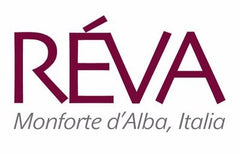
Réva is a winery based in Monforte D’Alba, within the Langhe area, in Piedmont, west northern Italy. Its aim is to bring the most brilliant young people of the area together, entrusting them with the task of expressing themselves in the most creative and professional way possible. This is Réva’s Wave, a dynamic team that represents the new Langhe generation, in constant communication with tradition, without the fear of reinterpreting it.
Today the vineyard sites which spread over 4 villages, Monforte D’Alba, Serralunga D’Alba, Novello and Barolo are all managed directly with the entire agronomic work done manually. Strong sustainable vineyards conduction, certified organic, they believe that their biggest challenge is not inventing anything but just define and express the beauty of the land where they live.
Behind every glass of wine there is an expression, expression of terroir, varietal, the varietal is for them everything, indigenous, they speak of the land and, last but not least, passion for what they do. Simply as that.
Press Reviews
Wine Align
92 points (2022) - Michael Godel
The name is Grey, representative three ways, of Réva’s Bianco label, the earth as its life giver and a sauvignon blanc meeting sauvignon gris growing from the Langhe “formation lequio.” In other words ancient Serravallian terroir come into being some 12 million years ago. Translates today as clay, limestone and fossil, adding up to and defined as grey marl. Just smells like wet stones, rich in mineral, as if after a rain. A place where ripeness means abundant and substantial fruit in cohorts with and defending the “sottosuolo” of elements below to do more than merely simulate but actually effect an authentic Langhe experience. Drink 2025-2030. Tasted May 2025
91 points (2022) - David Lawrason
This is a blend of sauvignon blanc and sauvignon gris - a highly unusual wine for the Langhe region, but a specialty of the youthfully re-imagined Reva estate in Montforte. It is an impressive, full flavoured, generous and well balanced wine with lifted aromas of guava/lychee, lemon and fresh herbs. It is very bright with lively acidity, considerable warmth and juicy, tart-edged finish. The length is excellent. A bit aggressive in the end so chill well. Tasted May 2025
91 points (2022) - John Szabo, MS
Réva's Langhe Bianco "Grey" is composed of 70% Sauvignon Gris and 30% Sauvignon Blanc, related but considered separate varieties, the former less effusively aromatic than the blanc version. It pours a pale-medium yellow gold colour, and offers maturing, bruised pineapple and binned apple aromatics in an advancing style, purposely no doubt considering Réva's commitment to natural winemaking and low intervention. It's also notably herbal, like dried mint or cold mint tea, fresh celery and other non-fruity components on a fairly rich and full-bodied frame with palpable extract - tannins - that provide some grip. Despite the advancing flavours, I'd recommend another year or two in the cellar for the palate to smooth out, and since it's not about the fruit in any case, those flavours will continue to develop in the savoury spectrum. Length is very good. Tasted May 2025.
- White Wine
- Chardonnay
- Sustainable, Vegan-Friendly
- Dry
- Medium Bodied
- 750ml
- 13% alc./vol
About the Winery
The Farm

“The Farm” is a 10-acre vineyard in Niagara’s Twenty Mile Bench, planted to Pinot Noir. The Neudorf vineyard was originally planted with Pinot Noir in 2000 for Le Clos Jordanne and aptly named “La Petite Colline”, meaning “little hill”, a nod to the gentle slopes that permeate the plot.
The property is rooted in traditions of gathering family & friends, and where Peter and Dora Neudorf call home. The cellar door opens once a year for guests to taste new releases, and enjoy live music and local food.
- White Wine
- Sauvignon Blanc
- Natural, Sustainable, Vegan-Friendly
- Dry
- Medium Bodied
- 750ml
About the Winery
Grains d'Estuaire
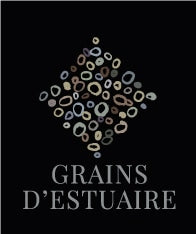
Julien Bonneau, (Château Haut Grelot in the Blayais), and his friend Alexandre Lavigne, restaurateur in Saint-Palais-sur-Mer, created in 2014 a range of wines, Grains d'Estuaire, from 'a 10 ha vineyard located in Saint-Bonnet-sur-Gironde, in the south of Charente-Maritime.
- Red Wine
- Nebbiolo
- Biodynamic, Natural, Organic, Vegan-Friendly
- Dry
- Medium Bodied
- 750ml
- 14% alc./vol
About the Winery
Punset

While the vineyards that form Punset have been farmed by the Marcarino family for generations, it is truly thanks to Marina and her incredible energy that the estate is how it is nowadays. In the 1980s, she decided to pursue organic farming – a demanding choice that was rewarded by becoming the first estate to receive the organic certification in Italy. Her passion for the soil and the environment led her to embrace biodynamics and the agronomic philosophy of Manasobu Fukuoka. From one of the healthiest vineyards in Italy, Marina crafts wines that brim with life, energy, and pure terroir.
Known for the very first certified organic Barbaresco of Italy, Marina continues to show the world that you can preserve tradition and think of the future simultaneously.
Press Reviews
James Suckling
92 points
This is tasting beautifully now with strawberry, cedar, and hazelnut character. It’s medium-bodied with firm tannins that need to soften. But very pretty already. Drinkable now, but better in two or three years. Try after 2024.
Wine Enthusiast
90 points
Blue flower, underbrush and wild herb aromas mix with a whiff of tobacco. Racy and linear, the palate offers sour cherry, star anise and a hint of rusted iron alongside taut, close-grained tannins that leave a drying finish.
WineAlign
94 points (2019) - Michael Godel
Lovely nebbiolo built on substantial fruit, fluidity, ease, calm and a well structured frame. A beautiful Barbareso from Neive that has already resolved quite dutifully and is just about ready to drink with philanthropy in the proverbial window. Steady and graceful, a very charming wine that everyone needs to know. Drink 2025-2032. Tasted blind at Nebbiolo Prima January 2024.
- Red Wine
- Syrah
- Biodynamic, Natural, Organic, Vegan-Friendly
- Dry
- Medium Bodied
- 750ml
- 12.5% alc./vol
About the Winery
Domaine du Coulet - Matthieu Barret
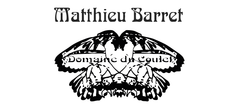
Matthieu Barret was born in Aix-en-Provence in 1975 and studied viticulture in Beaune.
He is the 7th generation vigneron and joined his grandfather in Cornas in 1997. Previously, his family had only been farming and selling grapes. He practices biodynamic viticulture, obtaining very low yields (23 hl/ha) and extraordinary quality. He describes his wines as being 100% grape, with a very low sulphite addition. His wines are extremely clean, and, true to the Cornas character. Domaine du Coulet was founded by Matthieu Barret’s grandfather after WWII, and over the years has supplied grapes to some of the best known producers in the Northern Rhône, including Chapoutier and Delas. While his father eschewed the agrarian lifestyle, opting instead for a career in international business, Matthieu knew early on that he wanted to be a vigneron. In 1998 at the age of only 23, he took over the family’s 25 acres of well-situated vines on the terraced hillsides of Cornas.
From the beginning, Matthieu has employed natural, organic practices and by 2002 (his second year of production) the domaine received its biodynamic certification. With each vintage, Matthieu has gained a better understanding of his vine parcels and through thoughtful experimentation, he now turns out a remarkable selection of Cornas wines that express the unique nuances of each micro-terroir. No new oak, no racking, minimal use of sulfur and no fining or filtration. Pure, sexy Syrah.
- Orange Wine
- Ribolla Gialla
- Biodynamic, Natural, Organic, Vegan-Friendly
- Dry
- Medium Bodied
- 750ml
- 12% alc./vol
About the Winery
Štekar
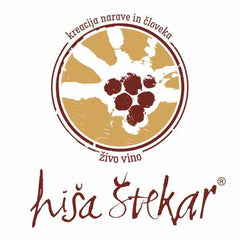
The Štekar family has been growing grapes in Goriska Brda since 1985. With 6 acres of vines planted in the stunning hills of western Slovenia, along with cherry orchards, Jure Štekar has committed to make wine the way his grandfather Emil taught his father: respecting tradition and avoiding invasive technologies.
Certified organic since 2006, Jure likes to play with long macerations, spontaneous fermentations and tiny SO2 amounts. His goal is to produce genuine wines that tell the story of his land and family.
Press Reviews
Jancis Robinson
17.5
Deep gold, pungent, punchy. A fickle nose that catches a flicker of Roman drains one moment and then floods the two feet above the glass with orange blossom and quince. So salty your mouth will pucker and then you get the sweetness and citrus oils and herbal bite. It's twists and twists of clementine peel and tangerine and sweet lime. It's oregano and kumquat, pink salt and sour cream. It's punky, silk-and-handcuffs, addictive. Jure Štekar's wines get more and more beautiful every year.
- White Wine
- Chardonnay
- Sustainable, Vegan-Friendly
- Dry
- Medium Bodied
- 750ml
- 13% alc./vol
About the Winery
Leaning Post
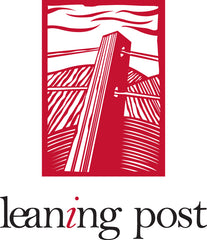
A leaning post is what you find at the beginning of a row of grapes, anchoring the wires that are the frame-work for growing grapevines. It is the beginning of an obsession to translate a time and place into liquid. Leaning Post wines take you to that beginning by finding small, unique plots of land in Niagara and putting them in bottle. Because after stripping away all the fancy buildings and high-tech equipment you are left with a place on this earth that grows wine unlike any other. When you taste that in a glass you just know it. Nadia and Ilya have had to rely on the support of family, friends and financial institutions to make the dream of owning a winery a reality. Leaning Post began as a virtual winery and is so proud to now have the quaint tasting room at 1491 Hwy 8 on their home property in Winona, Ontario.
Ilya and Nadia are the brains and passion behind Leaning Post Wines. It started with a dream to take unique, interesting single vineyard blocks in Niagara and turn them into distinctive, terroir driven wines. Nadia and Ilya first met in their hometown of Winnipeg, MB where their passion for wine and each other was born.
Ilya has been a winemaker in the Niagara Region for the last 17 vintages working at Daniel Lenko Estate Winery, Foreign Affair and now at Leaning Post Wines. Ilya is also a consulting winemaker at the Good Earth Winery. Ilya’s true passion in life is to make world renowned wines from Niagara that really showcase the distinct terroir that Niagara offers.
- White Wine
- Arneis
- Biodynamic, Natural, Organic, Vegan-Friendly
- Dry
- Medium Bodied
- 750ml
- 13.5% alc./vol
About the Winery
Punset

While the vineyards that form Punset have been farmed by the Marcarino family for generations, it is truly thanks to Marina and her incredible energy that the estate is how it is nowadays. In the 1980s, she decided to pursue organic farming – a demanding choice that was rewarded by becoming the first estate to receive the organic certification in Italy. Her passion for the soil and the environment led her to embrace biodynamics and the agronomic philosophy of Manasobu Fukuoka. From one of the healthiest vineyards in Italy, Marina crafts wines that brim with life, energy, and pure terroir.
Known for the very first certified organic Barbaresco of Italy, Marina continues to show the world that you can preserve tradition and think of the future simultaneously.
Press Reviews
Wine Align
90 points (2018) - Michael Godel
Next stage complexity emerges from this extraordinarily ulterior half and half white from Marina Macarino’s Domaine Punset in Barbaresco. Get your disco dancing shoes on with a glass of this sweet nectar, dry as the Neive hills and ready to rock.
Ne’? is the “Piedmontese” way of ending a sentence, like ‘eh in Canada. A 50-50 arneis and favortita mix, salt missive over fruit and extremely fresh. The aperitíf white that connects dialectal territory with those in the diaspora that want a taste.
- Red Wine
- Cabernet Franc, Carignan, Grenache, Merlot
- Natural, Vegan-Friendly
- Dry
- Medium Bodied
- 750ml
About the Winery
Celler Escoda-Sanahuja

Joan Ramón Escoda founded Celler Escoda Sanahuja in 1999 along with his wife Mari Carmen in Conca del Barbera, Catalonia. Since then, they have been disrupting the wine industry both in their home-country and internationally.
Celler Escoda Sanahuja was one of the first wineries that, back in 2005 stopped adding sulphites to their wines. Joan Ramon has always been a radical winemaker and a grass-roots innovator. His wild enthusiasm has been fuel for the natural winemaking scene, and has also led him to, spontaneously, create the 'Brutal' movement popular in natural wine circles. These are highly individual wines reflecting their origins and their innovative winemaker.
- Red Wine, White Wine
- Chardonnay, Pinot Noir, Trousseau
- Sustainable, Vegan-Friendly
- Dry
- Medium Bodied
- 750ml
About the Winery
Domaine Baud Père et Fils

The history of Domaine Baud dates back to 1742, and it wasn't until 1950 when René Baud, the 7th generation, rebuilt the vineyard which had suffered from the phylloxera crisis and two World Wars.
Starting with only 4 hectares, the vineyard progressively expanded to 20 hectares with the help of successive generations. Now, managed by siblings Clémentine and Bastien, the 9th generation, the estate continues to flourish and grow, with a strong commitment to sustainable viticulture and preserving the traditions and style that makes the wines of the Jura so unique and incredible.
The estate achieved the Terra Vitis certification in 2014 for its eco-friendly work and environmental preservation.
- White Wine
- Gouveio, Viosinho
- Sustainable
- Dry
- Medium Bodied
- 750ml
- Red Wine
- Pinot Noir
- Sustainable
- Dry
- Residual Sugar: 3.00 g/l
- Medium Bodied
- 750ml
- 13.00% alc./vol
About the Winery
Groupe Bellene
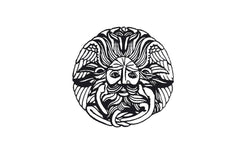
Led by Nicolas Potel in Beaune, Groupe Bellene is composed of the négociant arm Maison Roche de Bellene, the winery arm Domaine de Bellene, and a special back-vintage series under the Collection Bellenum label.
- Maison Roche de Bellene offers a complete range of wines, with an emphasis on individual terroirs from old vines of more than 40 years. All of the growers that Nicolas works with are either organic certified or sustainably farmed.
- Domaine de Bellene represents the wines that are produced and bottled from Nicolas Potel's private vineyard holdings.
- Collection Bellenum is a back vintage series that Nicolas Potel sourced from his friends in the region, offering a magnificent selection of bottled history. The wines have moved only twice in their lives, from the original cellar to Potel's and now to yours!
Nicolas Potel grew up at Volnay's Domaine Pousse d'Or, where his father worked. He trained abroad and returned home in 1996 to build a négociant business and started Maison Nicolas Potel, where he sourced grapes from good parcels, often working with the growers to improve the quality. By 2002, he was making 120 wines from 50 different appellations, and the rest is history!
Press Reviews
WineAlign
90 Points - David Lawrason
This is a fairly pale, light and tender pinot noir that is nicely balanced, typical and complete. The nose captures fairly generous red cherry nicely suffused with light spice, red rose and forest floor. It is light bodied, quite smooth and elegant with slightly crusty tannin and some heat. Very good to excellent length. Best now to 2023.
- Red Wine
- Grenache, Syrah
- Sustainable, Vegan-Friendly
- Dry
- Residual Sugar: 3.00 g/l
- Medium Bodied
- 750ml
- 14.50% alc./vol
About the Winery
Domaine Andre Aubert
At the very heart of the Rhône Valley, at the northerly tip of the Southern Rhône, lie the vineyards of Grignan-Les-Adhémar. The chances are you haven’t heard the name before, few people have, but the wines are worth seeking out. It’s not a new wine region – vines have been planted here since around 500BC but it is a new name (formerly known as Côteaux-du-Tricastin). Domaine André Aubert, has been formed over decades and today comprises of more than 280 hectares spread from north to south of the prestigious Southern Rhone Valley on the appellations Côtes du Rhône, Côtes du Rhône villages, Visan, and Grignan-les-Adhémar.
Press Reviews
James Suckling
90 Points
A medium-bodied red with blackberries, currants, herbs and baking spices on the nose. Fine tannins with a juicy core of berries and peppercorns on the palate and a flavourful finish. Grenache, syrah and mourvedre. Drink now.
- Orange Wine
- Chenin Blanc, Macabeo
- Natural, Vegan-Friendly
- Dry
- Medium Bodied
- 750ml
- 12% alc./vol
About the Winery
Celler Escoda-Sanahuja

Joan Ramón Escoda founded Celler Escoda Sanahuja in 1999 along with his wife Mari Carmen in Conca del Barbera, Catalonia. Since then, they have been disrupting the wine industry both in their home-country and internationally.
Celler Escoda Sanahuja was one of the first wineries that, back in 2005 stopped adding sulphites to their wines. Joan Ramon has always been a radical winemaker and a grass-roots innovator. His wild enthusiasm has been fuel for the natural winemaking scene, and has also led him to, spontaneously, create the 'Brutal' movement popular in natural wine circles. These are highly individual wines reflecting their origins and their innovative winemaker.
- White Wine
- Sauvignon Blanc
- Sustainable
- Dry
- Residual Sugar: 6.00 g/l
- Medium Bodied
- 750ml
- 13.00% alc./vol
About the Winery
Invivo
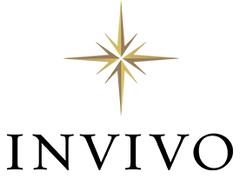
Invivo's journey began when two Kiwi friends, Rob and Tim, met in a London bar, determined to revolutionize the wine industry by creating a strong brand that defies tradition. Since 2008, Invivo has become a leading producer in New Zealand, winning over 600 medals and expanding operations across several countries. Through customer focus and innovation, including being one of the Southern Hemisphere's largest crowdfunded companies, Invivo has rapidly grown. Rejecting traditional winemaking norms, Invivo brings elegance from the old world to their original range, featuring Sauvignon Blanc, Pinot Gris, Chardonnay, Pinot Noir, and Rosé. Their collaborations with Graham Norton and Sarah Jessica Parker have further elevated their profile, embodying Invivo's vision of bringing people together to create greatness.
Press Reviews
Wine Orbit
94 Points - Sam Kim
It's gorgeously aromatic on the nose, showing kiwifruit, fig, crunchy apple and lime zest characters, followed by a juicy palate that's punchy and tasty. Brilliantly expressed with loads of youthful fruit flavours, making it highly appealing. At its best: now to 2027.
- White Wine
- Chenin Blanc
- Sustainable, Vegan-Friendly
- Dry
- Residual Sugar: 2.00 g/l
- Medium Bodied
- 750ml
- 12.50% alc./vol
About the Winery
Radford Dale
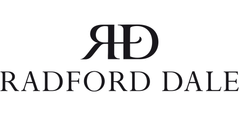
Radford Dale and The Winery of Good Hope are two brands made by the same people, in the same winery. The team behind these wineries has been an industry leader since the 1990s in chemical free farming, and more recently in low and no sulfur winemaking. They are a founding member of PIWOSA (Premium Independent Wineries of South Africa) which sets ethical, environmental and social uplift standards. Recognizing the social inequality present in South Africa Radford Dale has also set up a trust called Land of Hope to help facilitate bright futures for children, focusing heavily on education.
Alex Dale who owns and manages both projects is an Englishman who grew up spending summers in Burgundy, France. He moved there in his late teens to follow a passion for winemaking and also opened a wine bar in Beaune. He lived in Burgundy for many years before moving to South Africa in 1998, starting Radford Dale with Ben Radford, an Australian. The idea was to produce wines using modern techniques and technology with a healthy respect for tradition, something Alex came to understand well while living in Burgundy.
Wines are made with minimal intervention in order to best express each vineyard’s individuality.
Press Reviews
Winemag.co.za
94 Points - Christian Eedes
Grapes from the same Lynedoch vineyard planted in 1969 that supplies Radford Dale's top-end Renaissance bottling. 40% matured in foudre, the rest in a combination of 228-, 300- and 500-litre barrels. Citrus, peach and just the right amount of leesy, waxy complexity on the nose. Great fruit concentration, punchy acidity and pithy, slightly bitter finish. Old-vine Chenin treated with the lightest of hands to great effect
- Sparkling Wine
- Sustainable, Vegan-Friendly
- Dry
- Medium Bodied
- 750ml
About the Winery
Leaning Post

A leaning post is what you find at the beginning of a row of grapes, anchoring the wires that are the frame-work for growing grapevines. It is the beginning of an obsession to translate a time and place into liquid. Leaning Post wines take you to that beginning by finding small, unique plots of land in Niagara and putting them in bottle. Because after stripping away all the fancy buildings and high-tech equipment you are left with a place on this earth that grows wine unlike any other. When you taste that in a glass you just know it. Nadia and Ilya have had to rely on the support of family, friends and financial institutions to make the dream of owning a winery a reality. Leaning Post began as a virtual winery and is so proud to now have the quaint tasting room at 1491 Hwy 8 on their home property in Winona, Ontario.
Ilya and Nadia are the brains and passion behind Leaning Post Wines. It started with a dream to take unique, interesting single vineyard blocks in Niagara and turn them into distinctive, terroir driven wines. Nadia and Ilya first met in their hometown of Winnipeg, MB where their passion for wine and each other was born.
Ilya has been a winemaker in the Niagara Region for the last 17 vintages working at Daniel Lenko Estate Winery, Foreign Affair and now at Leaning Post Wines. Ilya is also a consulting winemaker at the Good Earth Winery. Ilya’s true passion in life is to make world renowned wines from Niagara that really showcase the distinct terroir that Niagara offers.
- Orange Wine
- Chenin Blanc
- Natural, Vegan-Friendly
- Dry
- Medium Bodied
- 750ml
- 13% alc./vol
About the Winery
Celler Escoda-Sanahuja

Joan Ramón Escoda founded Celler Escoda Sanahuja in 1999 along with his wife Mari Carmen in Conca del Barbera, Catalonia. Since then, they have been disrupting the wine industry both in their home-country and internationally.
Celler Escoda Sanahuja was one of the first wineries that, back in 2005 stopped adding sulphites to their wines. Joan Ramon has always been a radical winemaker and a grass-roots innovator. His wild enthusiasm has been fuel for the natural winemaking scene, and has also led him to, spontaneously, create the 'Brutal' movement popular in natural wine circles. These are highly individual wines reflecting their origins and their innovative winemaker.
- Red Wine
- Pinotage
- Sustainable
- Dry
- Residual Sugar: 2.00 g/l
- Medium Bodied
- 750ml
- 12.00% alc./vol
Press Reviews
Platter’s South African Wine Guide 2026
4 Stars
“… very soft tannin, light texture. Yet variety’s juicy, high-toned flavour is eloquently expressed, & 2024 is generous & appealing.”
WineAlign
90 Points - David Lawrason
What great value for such pure and friendly expression of pinotage. Historically most have tried too hard with this grape, but here the whole berry/carbonic fermentation is allowing pure and simple expression of the strawberry/rhubarb, leafy green and some flint. It is medium weight, open-knit, rounded, a touch sour-edged, with that distinct pinotage rusty nail note on the finish. Excellent length and delicious.
- Rosé Wine
- Limniona, Mavroudi, Xinomavro
- Sustainable
- Dry
- Medium Bodied
- 750ml
About the Winery
Oenops
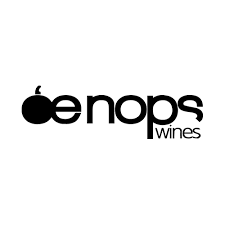
Founded in 2015, Oenops, meaning ‘wine face’, is a pioneering project whose mastermind is the talented winemaker Nikos Karatzas. Following the micro-négociant system, Oenops aims to produce high quality, great value wines. Rather than owning vineyards, the company sources grapes from selected plots across Greece’s best terroirs, with a focus on cool-climate sites and old vines of indigenous varieties.
At the core of the company’s philosophy is the close partnership with ambitious growers who share a same sustainability-focused approach. Oenops mission is to source great fruit and craft wines that fully express its quality and sense of time and place. By using simple methods, led by the profile of the grapes rather than by any winemaking protocols, the company has built a range of authentic, fruit-forward wines that bring out the best of each variety, terroir and style.
The team tastes meticulously and tailors its approach to each plot and variety, based on the core philosophy and ethos. By vinifying each plot and variety separately the team has grown an understanding of the specificity of each vineyard and of the work done each year, in turn allowing for improvement in each vintage.
A repertoire of indigenous grape varieties, such as Malagousia, Assyrtiko, Vidiano, Roditis, Xinomavro, Limniona, and Mavroudi, is expressed through different styles of Greek varietal wines and in labels that have gained widespread recognition, among consumers and critics alike.
What the team at Oenops strives for is, ultimately, to produce tasteful, elegant wines that work as perfect companions to every meal and special occasion.
Press Reviews
Wine Align
90 points (2021) - Michael Godel
Here Rosé is crafted from three local favourites, of xinomavro, limniona and mavroudi. Good trilogy of complimentary aspect and interaction, grape extract, salumi cure, red citrus and salinity all involved, integrated and in check. Definite rose and grapefruit essence, calm and pleasure guaranteed. Very Greek, island and sea. Drink 2022-2024. Tasted March 2022.
- Red Wine
- Cabernet Sauvignon, Merlot
- Vegan-Friendly
- Dry
- Medium Bodied
- 750ml
- 12.50% alc./vol
About the Winery
Château Haut-Grelot
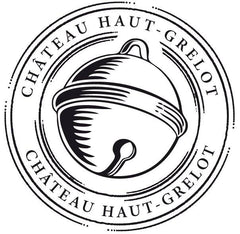
Château Haut Grelot is located in Saint Ciers Sur Gironde, approximately 50 kms north of Bordeaux, on the right bank of the Gironde Estuary. It was established by the Bonneau family in 1922 and now run but the 4th Generation. Today Château Haut-Grelot comprises 58 hectares of vineyards and is run by Céline and Julien, who was recently awarded the title 'Best Young Talent' in Bordeaux.
The vineyards are made up of sandy-gravel on the hillsides bordering the Gironde Estuary and sand-clay-silt on the hillsides further inland. Blaye Côtes de Bordeaux benefits from an ideal microclimate where there is a high level of sunshine and enough rain to guarantee the perfect environment for grape production. As a result the reds are fruity and concentrated and the whites are fresh, vibrant and delicate.
- Rosé Wine
- Gamay
- Sustainable, Vegan-Friendly
- Dry
- Medium Bodied
- 750ml
- 13% alc./vol
About the Winery
The Farm

“The Farm” is a 10-acre vineyard in Niagara’s Twenty Mile Bench, planted to Pinot Noir. The Neudorf vineyard was originally planted with Pinot Noir in 2000 for Le Clos Jordanne and aptly named “La Petite Colline”, meaning “little hill”, a nod to the gentle slopes that permeate the plot.
The property is rooted in traditions of gathering family & friends, and where Peter and Dora Neudorf call home. The cellar door opens once a year for guests to taste new releases, and enjoy live music and local food.
- White Wine
- Chardonnay
- Sustainable, Vegan-Friendly
- Dry
- Medium Bodied
- 750ml
About the Winery
Domaine Baud Père et Fils

The history of Domaine Baud dates back to 1742, and it wasn't until 1950 when René Baud, the 7th generation, rebuilt the vineyard which had suffered from the phylloxera crisis and two World Wars.
Starting with only 4 hectares, the vineyard progressively expanded to 20 hectares with the help of successive generations. Now, managed by siblings Clémentine and Bastien, the 9th generation, the estate continues to flourish and grow, with a strong commitment to sustainable viticulture and preserving the traditions and style that makes the wines of the Jura so unique and incredible.
The estate achieved the Terra Vitis certification in 2014 for its eco-friendly work and environmental preservation.
- Red Wine
- Pinot Noir
- Sustainable
- Dry
- Residual Sugar: 2.00 g/l
- Medium Bodied
- 750ml
- 13.00% alc./vol
About the Winery
Groupe Bellene

Led by Nicolas Potel in Beaune, Groupe Bellene is composed of the négociant arm Maison Roche de Bellene, the winery arm Domaine de Bellene, and a special back-vintage series under the Collection Bellenum label.
- Maison Roche de Bellene offers a complete range of wines, with an emphasis on individual terroirs from old vines of more than 40 years. All of the growers that Nicolas works with are either organic certified or sustainably farmed.
- Domaine de Bellene represents the wines that are produced and bottled from Nicolas Potel's private vineyard holdings.
- Collection Bellenum is a back vintage series that Nicolas Potel sourced from his friends in the region, offering a magnificent selection of bottled history. The wines have moved only twice in their lives, from the original cellar to Potel's and now to yours!
Nicolas Potel grew up at Volnay's Domaine Pousse d'Or, where his father worked. He trained abroad and returned home in 1996 to build a négociant business and started Maison Nicolas Potel, where he sourced grapes from good parcels, often working with the growers to improve the quality. By 2002, he was making 120 wines from 50 different appellations, and the rest is history!
Press Reviews
Wine Align - John Szabo, MS
93 points
From a high-density 1956 planting of pinot noir, aged in 20% new wood and the rest in used barrels, this is complex and perfumed Saint Romain, especially spicy and stemmy in a good way, adding an impression of freshness and counter-balancing the ripe red berry fruit. The palate is mid-weight, properly firm and structured, with high sapidity and excellent length, and well-integrated, dusty tannins that still need some time to settle in. In the context of the region, I have to say this is an excellent value red Burgundy. I'd cellar for another 2-3 years minimum before enjoying, or hold until the end of the decade without concern. Great complexity and depth. Tasted May 2022.
- Red Wine
- Pinot Noir
- Sustainable
- Dry
- Residual Sugar: 2.00 g/l
- Medium Bodied
- 750ml
- 13.00% alc./vol
About the Winery
Groupe Bellene

Led by Nicolas Potel in Beaune, Groupe Bellene is composed of the négociant arm Maison Roche de Bellene, the winery arm Domaine de Bellene, and a special back-vintage series under the Collection Bellenum label.
- Maison Roche de Bellene offers a complete range of wines, with an emphasis on individual terroirs from old vines of more than 40 years. All of the growers that Nicolas works with are either organic certified or sustainably farmed.
- Domaine de Bellene represents the wines that are produced and bottled from Nicolas Potel's private vineyard holdings.
- Collection Bellenum is a back vintage series that Nicolas Potel sourced from his friends in the region, offering a magnificent selection of bottled history. The wines have moved only twice in their lives, from the original cellar to Potel's and now to yours!
Nicolas Potel grew up at Volnay's Domaine Pousse d'Or, where his father worked. He trained abroad and returned home in 1996 to build a négociant business and started Maison Nicolas Potel, where he sourced grapes from good parcels, often working with the growers to improve the quality. By 2002, he was making 120 wines from 50 different appellations, and the rest is history!
Press Reviews
WineAlign
93 Points - Michael Godel
Les Quartiers De Nuits is yet another minuscule plot of a vineyard identified and chosen by Nicolas Potel, not quite one-third of a hectare, planted 96 years before this 2023 harvest. An early one for the most part, before the cold winds move in and ahead of Grand Cru neighbours like that of Echezeaux and Clos de Vougeot. There is a bit of mean intensity and streak in this singular, lieu-dit cru of a Bourgogne. The tannins are fierce, they lash upon the palate with severity and therefore the necessity to give time will become the requiem to success. Les Quartiers De Nuits is no shrinking violet and in fact the mix of botanical verdancy and bitters make up a formula which could never be solved in the first few years. The stuffing can’t be denied and the objective is perspicuous. Stay clear for a while. Drink 2028-2035.
- Red Wine
- Rotburger
- Natural, Sustainable
- Dry
- Medium Bodied
- 750ml
- 11% alc./vol
About the Winery
RR81
RR81 stands for 'Regional Road 81' - the road The Farm sits on, and a main artery through wine country. The RR81 approach to winemaking is simply fermented grapes with nothing added. One-off wines sourced from some of the best single vineyards in Niagara. These wines are made in the barn at The Farm with minimal intervention (just a few bins and an old basket press). The result equals some of the best, and most unique, wines coming out of Niagara.- Red Wine
- Lagrein
- Sustainable
- Dry
- Medium Bodied
- 750ml
About the Winery
Kellerei Bozen - Cantine Bolzano

Cantina Bolzano, based in the town of Bolzano, traces its roots to two of Alto Adige’s most historic cooperatives: Santa Magdalena, est. 1930 and Cantina Gries, est. 1908. After deciding to merge in 2001, Cantina Bolzano was created. Bolzano is located in the middle of a valley basin surrounded by hilly vineyards that grow from 200 meters above sea level up to 1000. North and south meet in this valley, and the sun warms the stony soils with its pronounced diurnal temperatures, protecting the vines from the cold.
The average growers’ plots in Sudtirol averages only approx. 1 hectare, and the area, with its famed reputation and steep slopes, is an expensive area to farm. The member of Bolzano (approx. 300 in all) own many of the best vineyards throughout the region, including the Valle Isarco, and pool their resources to create top quality wines. And while no grower is certified organic, many practice organic viticulture and all of them adhere to natural practices in their vineyards. Most growers have lived on their farms with their families for generations. They protect their land and cultivate their vineyards as they have done for generations with total respect of the environment where they live.




























